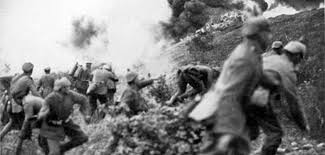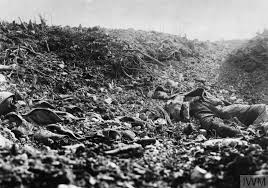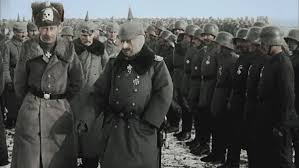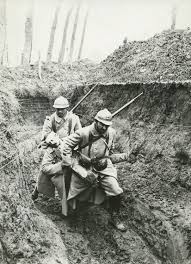The battle of Verdun all that you need to know
The Battle of Verdun (Bataille de Verdun, Schlacht um Verdunfought from 21 February to 18 December 1916, was the largest and longest battle of the First World War on the Western Front between the German and French armies. The battle took place on the hills north of Verdun-sur-Meuse in north-eastern France. The German 5th Army attacked the defences of the Fortified Region of Verdun and those of the French Second Army on the right bank of the Meuse. Inspired by the experience of the Second Battle of Champagne in 1915, the Germans planned to capture the Meuse Heights rapidly, because this was an excellent defensive position with good observation for the artillery to bombard Verdun. The Germans hoped that the French would commit their strategic reserve to recapture the position and suffer catastrophic losses in a battle of annihilation, not costly for the Germans because of their tactical advantage.
Poor weather delayed the beginning of the German attack until 21 February, but the Germans enjoyed initial success, capturing Fort Douaumont in the first three days of the offensive. Afterwards the German advance slowed, despite many French casualties. By 6 March, 20 1⁄2 French divisions were in the RFV and a more extensive defence in depth had been constructed. Pétain ordered that no withdrawals were to be made and that counter-attacks were to be conducted, despite exposing French infantry to fire from the German artillery. By 29 March, French artillery on the west bank had begun a constant bombardment of German positions on the east bank, which caused many German infantry casualties.
In March, the German offensive was extended to the left (west) bank of the Meuse, to gain observation of the ground from which French artillery had been firing over the river onto the Meuse Heights. The Germans were able to advance at first but French reinforcements contained the attacks short of their objectives. In early May, the Germans changed tactics and made local attacks and counter-attacks, which gave the French an opportunity to begin an attack against Fort Douaumont. Part of the fort was occupied, until a German counter-attack recaptured the fort and took numerous prisoners. The Germans changed tactics again, alternating their attacks on both banks of the Meuse and in June captured Fort Vaux. The Germans continued the offensive beyond Vaux, towards the last geographical objectives of the original plan, at Fleury-devant-Douaumont and Fort Souville. The Germans drove a salient into the French defences, captured Fleury and came within 4 km (2.5 mi) of the Verdun citadel.
In July 1916, the German offensive was reduced to provide artillery and infantry reinforcements for the Somme front and during local operations, the village of Fleury changed hands sixteen times from 23 June to 17 August. A German attempt to capture Fort Souville in early July was repulsed by artillery and small arms fire. To supply reinforcements for the Somme front, the German offensive was reduced further and attempts were made to deceive the French into expecting more attacks, to keep French reinforcements away from the Somme. In August and December, French counter-offensives recaptured much of the ground lost on the east bank and recovered Fort Douaumont and Fort Vaux.
The Battle of Verdun lasted for 303 days and became the longest and one of the most costly battles in human history. An estimate in 2000 found a total of 714,231 casualties, 377,231 French and 337,000 German, for an average of 70,000 casualties a month; other recent estimates increase the number of casualties to 976,000 during the battle, with 1,250,000 suffered at Verdun during the war.
Temas relacionados:
También te puede interesar
Esta web se reserva el derecho de suprimir, por cualquier razón y sin previo aviso, cualquier contenido generado en los espacios de participación en caso de que los mensajes incluyan insultos, mensajes racistas, sexistas... Tampoco se permitirán los ataques personales ni los comentarios que insistan en boicotear la labor informativa de la web, ni todos aquellos mensajes no relacionados con la noticia que se esté comentando. De no respetarse estas mínimas normas de participación este medio se verá obligado a prescindir de este foro, lamentándolo sinceramente por todos cuantos intervienen y hacen en todo momento un uso absolutamente cívico y respetuoso de la libertad de expresión.
No hay opiniones. Sé el primero en escribir.







